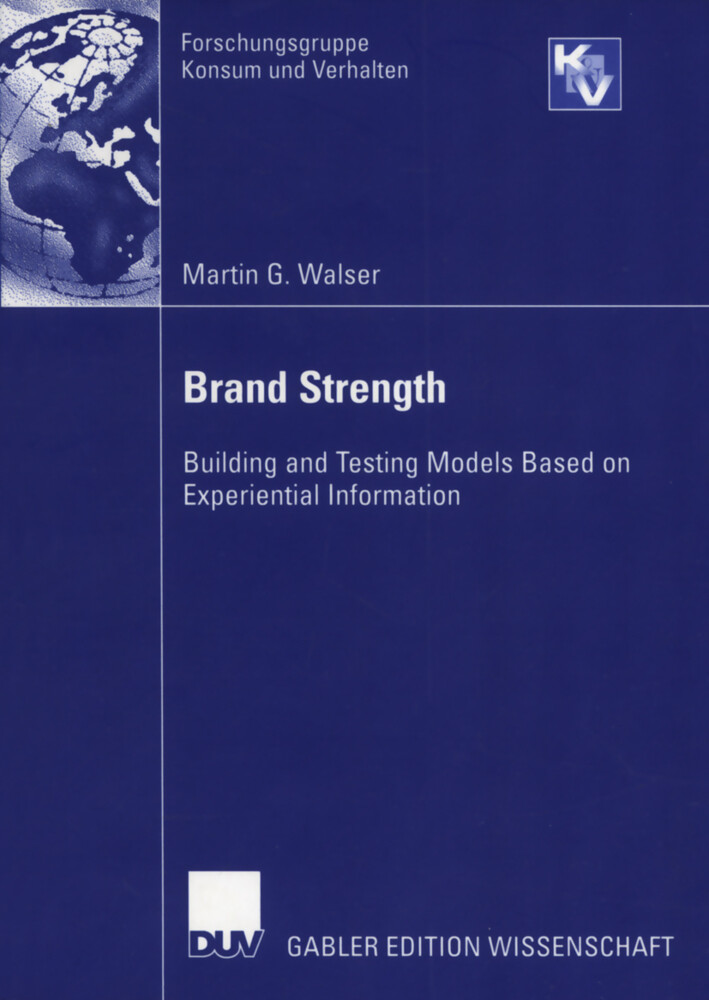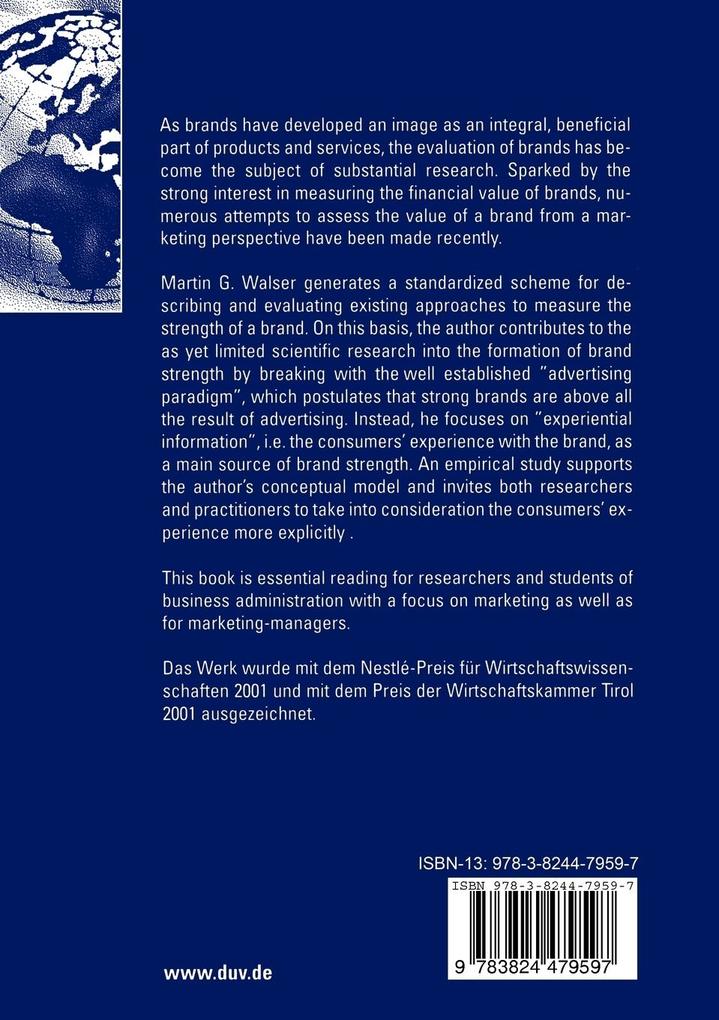Recent years have seen an ever increasing interest in the phenomenon of brands. A great number of books and articles have been published focusing on as various subjects as brand value, brand meaning, brand awareness or brand communities. Despite the numerous and widely different approaches to brand research and management, there seems to be general agreement on one point: strong brands are a major asset to any business firm. The questions what constitutes a strong brand and how brand strength is to be measured, however, has stirred a hefty discussion in literature. With his research work presented in this book, Martin Walser has made a very interesting contribution to this discussion. Based on a description of the history of branding and the functions of brands in modem economies he first compares the various conceptional approaches to the brand phenomenon and develops a definition that perfectly fits the purpose of his research. v Preface This doctoral dissertation is the result of an investigation into the nature, measurement and formation of brand strength. It is an attempt to consolidate a fragmented field of research and to advance our knowledge, by providing one of the few empirical studies examining models of brand strength formation. This work would not have been possible without the help of a number of people.
Inhaltsverzeichnis
1. Introduction. - 1. 1. Research problem and purpose. - 1. 2. Research process and structure. - 2. Brands. - 2. 1. The importance of brands. - 2. 2. Historical evolution of brands. - 2. 3. Functions of brands. - 2. 4. Defining brand . - 2. 5. Objects of branding activities. - 3. Brand evaluation. - 3. 1. Causes for the interest in brand evaluation. - 3. 2. Brand evaluation: classification and areas of application. - 3. 3. Discussion of terminology. - 4. Brand strength. - 4. 1. Classification of existing definitions. - 5. Measuring brand strength. - 5. 1. A consumer-behavior framework for brand strength measures. - 5. 2. Summary of brand strength measures. - 5. 3. Current problems in measuring brand strength. - 5. 4. Assessing the necessity for multiple-construct measurement approaches. - 5. 5. Conclusions and recommendations for measuring brand strength. - 6. Brand strength formation. - 6. 1. A process of brand strength formation. - 6. 2. A conceptual model of brand strength formation. - 6. 3. Antecedents of brand strength. - 6. 4. A situative approach to assess the impact of experiential information on brand strength formation. - 7. Empirical design. - 7. 1. Approach and objectives of the study. - 7. 2. Operational definition of variables. - 7. 3. Empirical model and research hypotheses. - 7. 4. Research method. - 8. Empirical findings. - 8. 1. Hypothesis testing. - 8. 2. Testing the causal model of brand strength formation. - 8. 3. Summary and discussion of findings. - 8. 4. Limitations. - 9. Conclusions. - 9. 1. Contribution. - 9. 2. Implications for further research and brand management. - References.













